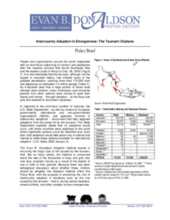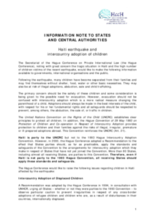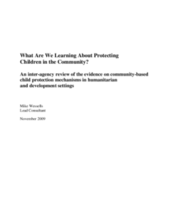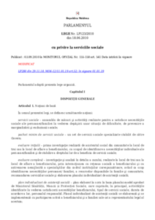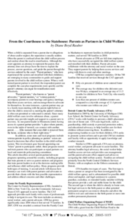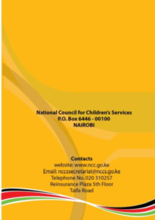Displaying 13331 - 13340 of 14525
The Adoption Institute offers this policy brief, with the purpose of examining the role of intercountry adoption in situations such as the one caused by the tsunami – that is, during natural disasters, armed conflicts, and other complex human emergencies
In this Information Note, the Hague Convention urges that the focus in emergencies should first be on child protection, rather than adoption. In the spirit of this Recommendation, it is clear that in a disaster situation, like that brought about by the earthquake, efforts to reunite a displaced child with his or her parents or family members must take priority. Premature and unregulated attempts to organise the adoption of such a child abroad should be avoided.
Address key messages and considerations for preventing separation; ensuring identification, tracing and family reunification is prioritized; and facilitating interim care, alternative care and adoption where necessary.
An interagency review of the available global evidence on community-based child protection mechanisms, their effectiveness, cost, scalability, sustainability and impact on children’s protection and wellbeing
This document presents the law on social services of Moldova.
This document presents the adoption law of Moldova.
This article explores the experience of institutionalization of Romanian children and Bronfenbrenner’s Ecological System Theory.
This article describes several parent partner/advocate programs operating around the United States, including programs that train parents to serve as parent mentors and programs that train parent leaders to sit at the decision-making table and influence child welfare policy.
The overall goal of this policy is to realize and safeguard the rights and welfare of the child in Kenya.
Este reglamento tiene por objeto adecuar la práctica judicial al sistema de protección integral de niñez y adolescencia, en la aplicación de medidas de protección y abrigo provisional de niños privados de su medio familiar.

